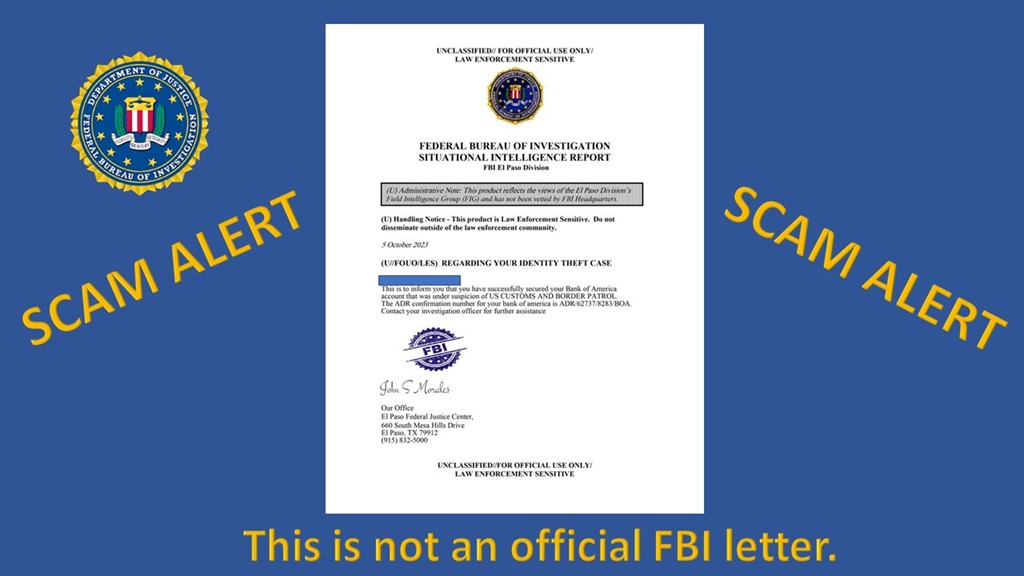Texas City FBI Warns Locals of Government Impersonation Crypto Scam

Some residents of the city of El Paso in the US state of Texas have received a legitimate-looking letter from scammers impersonating as Federal Bureau of Investigation (FBI) asking to pay cryptocurrencies.
The FBI has warned locals of a crypto scam that convinces victims to send cryptos and other funds. The scammers claim to be the head of the local field office in a fake government document.
The matters came into limelight after a victim resident of El Paso reported that he received a letter from the FBI asking for funds in digital currencies to be transferred.
The El Paso county said in a public service announcement that the letter titled “Regarding Your Identity Theft Case,” is made to look official by using an outdated FBI Situational Intelligence Report format. The letter also had an FBI seal and fake signature of the FBI El Paso Special Agent in Charge John S. Morales.

The alert from the officials described the scam as “a government impersonation scam” trying to obtain cryptos and other funds from an unwitting victim.
“FBI El Paso is asking that you throw the letter away. The FBI and other federal agencies do not call, send letters, or email individuals threatening arrest or demanding money.”
What Does the Letter Claim
Per the image of the letter shared by the El Paso authorities, the letter refers to a suspicious Bank of America account flagged by U.S. Customs and Border Patrol. It also contains an ‘ADR’ confirmation number and asks the receiver to contact “investigation officer for further assistance.”
An American depositary receipt (ADR) is a U.S. bank-issued certificate representing shares in a foreign company for trade on American stock exchanges.
The FBI officials confirmed that the agency has never used a logo such as the seal on the letter, cautioning residents to be aware of the scam and not respond to such letters.
Although, the letter did not directly ask for money, scammers use it to make victim believe that a real investigation is being conducted by the FBI. The perpetrators might later call the victims to send cryptos or money, said the officials.



